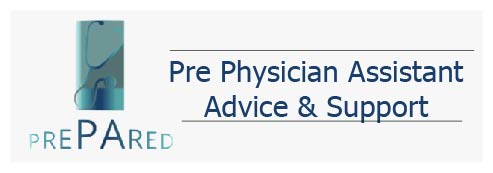Who, Why, What!? 3 Ways to Avoid a PA School Personal Statement #fail


Who, Why, What!?
3 Ways to Avoid a PA School Personal Statement #fail
After reading countless personal statements, I’ve seen the good, thebad, and the ugly. You can’t go wrong having an expert help you withyour statement, but before sending your essay to me or hitting submiton your CASPA, here are the 3 most important questions your personalstatement must answer.
1. Who are you?
Tell your readers succinctly about where you came from and thehighlights of your academic/professional life. This is usually thefirst part of your essay. This is not your life story, so try to getyour important points across in 1-2 paragraphs.
2. Why PA?
What experiences led you to the decision to become a PA? Specificquestions that must be answered in your essay are 1) Why you want tobe a PA? 2) What makes being a PA so unique (show that you understand what a PA does) and 3) Why you are well-suited for the role? In this section, usually the 2nd part of your personal statement, you can relay anecdotes about meaningful patient interactions or other personal experiences that have influenced your path thus far.
3. What you’ve done?
Now is your chance to share the experiences that have reinforced yourunique path toward becoming a PA. This 3rd section could include yourrecent relevant work experiences, highlights of your patient contacthours or shadowing experiences. Finally, are there any other detailsthat help you stand out from the pack? Perhaps you did bench researchin an NIH lab, worked with a biotechnology firm after studying engineering in undergrad, or lobbied Congress for an orphan drug interest group. Your experiences could also be something that has nothing to do with medicine or healthcare but would be a helpful piece for the admission committee to learn something unique about you!
What went wrong?
An (unofficial) #4 is addressing any negatives thatcould be lurking in your application. Examples could be a lowundergrad GPA, a gap in schooling or work experience or any otherextenuating circumstance that you feel the admissions committee shouldknow about. Again, I want to stress that this is not your excuse totell your whole “woe is me” life story. This is your chance to addressa question that a program might have when looking at your application.Consider composing your answer as if you were answering the questionin person during your PA program interview. This is also a greatexercise to get you thinking about HOW to answer tough questionsduring an interview. Explanations should be succinct and attempt toredirect attention to a (hopefully) weightier positive. For instance:”My overall undergraduate GPA reflected my lack of maturity andinterest in my pre-law major. Since then, my 4.0 science GPA,reflects my discipline and focused interest in pursuing my goals ofbecoming a PA.”
I am not advocating that your personal statement read like a copy andpasted cookbook of my suggestions. But keeping these questions inmind will help you organize your thoughts and get you startedgenerating that stand out essay! You can structure your essay using myformat, or there are infinite permutations with which you can experiment.If you have already written your statement, go back and make sureyou have at least touched on most of these questions and that yourwriting conveys your answers clearly.
I hope this outline helps you get started, and don’t forget I amhappy to consult at any point in your journey! If you have questions,email me atinfo@preparedpa.com
You can also submit your essays for reviewatPreparedPA.com/Services








Another way to avoid a personal statement fail is to be cognizant of the 5000 character limit. The character count tool in Microsoft Word tends to underestimate the characters, so be sure to double check with an online character counter. Anyways, I agree with what you said about making it clear who you are from the beginning. Good luck to everyone writing their personal statements!